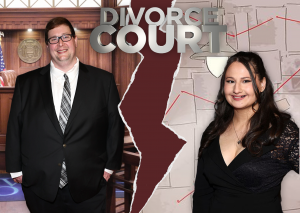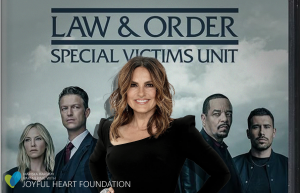I’ve liked girls for as long as I can remember.
In elementary school, when I didn’t know what homosexuality was, I convinced myself that my romantic feelings for girls were nothing more that an intense desire to be friends with them.
After moving from private to public school, I realized I was definitely attracted to women. I don’t recall coming out to my high school friends; I think they all just knew. My high school had an almost statistically impossible amount of LGBTQ individuals, with over one-sixth of my graduating class identifying as a part of the community. For perspective, the UCLA School of Law reports that less than 5 percent of Illinois identifies as LGBTQ. We also had a couple of outspokenly gay teachers and received education about gay and trans rights in our U.S. history classes.
Admittedly, I’ve had it way easier than most of my gay friends and peers. However, one thing I’ve never been able to reconcile was my sexual orientation and cheerleading.
“Lesbi-honest.” Queer and cheer have never been synonymous. In fact, the popular cult classic film “But I’m a Cheerleader” plays on society’s rigid view of cheerleaders and its inability to imagine them as anything but hetero.
On my high school competition squad, four of the 10 girls were either lesbian or bisexual, and I’m certainly not the only gay cheerleader here at Bradley. Bi, lesbian and trans cheerleaders exist. We just never hear from them.
I love girls just as much as I love the sport of cheer — and that’s a lot. In the summers, I instruct cheer camps across the Midwest for the Universal Cheer Association. I’m also a middle school cheer coach and college cheerleader. There isn’t a day that goes by where I’m not participating in cheer in some capacity.
If you look at my social media, you could easily tell that I’m a cheerleader, but you’d never be able to guess that I identify within the LGBTQ community. I keep all of my accounts clean because I have several coaches and athletes that follow me.
I’m incredibly grateful to have such a solid base of cheer acquaintances, but because of these followers, I feel unable to share an essential part of my identity, and that’s true for many other gay cheerleaders.
I’ve never posted pictures from pride, pride prom or anything that could be construed as “gay.” If a coach or athlete unfollowed me because of a post, it’d hurt, but I think my self-esteem could handle it. But if a coach refused to let me work with her athletes because of my sexual orientation, I’d be heartbroken.
The one cheer outlet that I am exceedingly grateful for is my squad here at Bradley. I came out to them fairly early into my college experience, and the reception I’ve received from them has been greater than I ever could have imagined.
In the back of my mind, I’ve always feared that I’d be on a squad where one or more girls refused to stunt with me because of my attraction to women. I mean, cheer is a very up close and personal sport. However, I have never once felt discriminated against here because of my sexual orientation. In fact, my team actively supports it.
In the future, I would love for outspokenly gay cheerleaders to become a regular occurrence, but the only way that’s going to be possible is if we open up a dialogue where those individuals feel comfortable enough to share their stories and experiences. My hope is that “queerleaders” become more accepted in the coming years and that culture as a whole dismantles its preconceived notions about what a cheerleader should and should not be.




